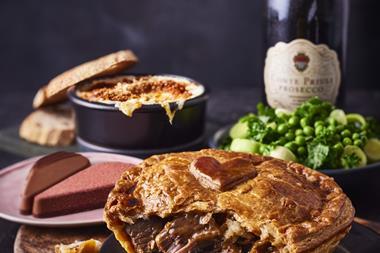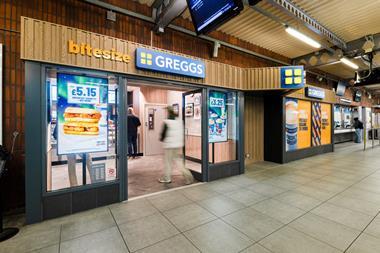The UK groceries market is delivering a good deal for consumers but action is needed to improve competition in a number of local markets and to address relationships between retailers and their suppliers, the Competition Commission (CC) has provisionally concluded.
In its provisional findings report, published today, the CC states that a lack of competition in certain local markets not only disadvantages consumers in those areas but also allows retailers to weaken their offer to consumers nationally. Further, some retailer land holdings and other practices, such as restrictive covenants, mean that competition is not as effective as it could be in a number of areas.
The CC is also concerned about the ability of grocery retailers to transfer excessive risk and costs to suppliers through various purchasing practices, such as retrospective changes to supply agreements. The CC considers that these practices could damage investment and innovation in the supply chain to the ultimate detriment of consumers.
The CC will now consider a range of measures to address these concerns before deciding on its final remedies. Options under consideration include the lifting of restrictive covenants and exclusivity arrangements, sales of land holdings, and recommending changes to the planning system to place greater weight on competition and choice. The CC will also consider changes to the Supermarkets Code of Practice (SCOP), which regulates retailer-supplier relationships.
Peter Freeman, Chairman of the CC and Inquiry Group Chairman said:
Our focus throughout this inquiry has been whether consumers arereceiving the benefits of vigorous competition, such as value, choice, innovation and convenience-and on most counts the groceries market delivers just that. However, we feel that consumers could be even better served.
Having looked in detail at local grocery markets, in most areas shoppers have a good choice and benefit from the strong competition between retailers, but in a number of local areas more competition would benefit consumers both locally and more generally.
We are concerned that retailers could be using existing land holdings and restrictive covenants to frustrate potential competition. Further, whilst we understand that the planning system has to balance conflicting demands, not all of which favour development, it can act as a barrier to new competing stores.
We have looked carefully at the concerns that have been raised with us regarding small shops. The evidence is that convenience stores and specialist grocers that provide consumers with a strong retail offer will prosper. This is not to say that life is easy for small retailers, but we do not see evidence of unfair distortions in competition between large grocery retailers and small stores.
We do have concerns about aspects of the way retailers deal with their suppliers, which, if left unchecked, could harm consumers. We are concerned that the transfer of unexpected costs and excessive risk on to suppliers is likely to affect their ability to invest and innovate, which could then adversely affect product quality and innovation for consumers. Whilst the Code of Practice does have some effect, it does not entirely prevent the potential harm.
As a result of these concerns, we have published a list of potential measures to enhance and preserve competition which we will now look to discuss with all interested parties before we publish our final report next year.
The CC has carried out an exhaustive inquiry into all aspects of the groceries market, having received over 550 submissions; held 65 hearings with main and third parties; undertaken three separate surveys as well as analysing existing data and research covering the whole industry; collected a dataset of 14,000 grocery stores and published 26 working papers.
The full report can be found on the Competition Commission's website:
http://www.competition-commission.org.uk/inquiries/ref2006/grocery/groceries_inquiry_news.htm
In its provisional findings report, published today, the CC states that a lack of competition in certain local markets not only disadvantages consumers in those areas but also allows retailers to weaken their offer to consumers nationally. Further, some retailer land holdings and other practices, such as restrictive covenants, mean that competition is not as effective as it could be in a number of areas.
The CC is also concerned about the ability of grocery retailers to transfer excessive risk and costs to suppliers through various purchasing practices, such as retrospective changes to supply agreements. The CC considers that these practices could damage investment and innovation in the supply chain to the ultimate detriment of consumers.
The CC will now consider a range of measures to address these concerns before deciding on its final remedies. Options under consideration include the lifting of restrictive covenants and exclusivity arrangements, sales of land holdings, and recommending changes to the planning system to place greater weight on competition and choice. The CC will also consider changes to the Supermarkets Code of Practice (SCOP), which regulates retailer-supplier relationships.
Peter Freeman, Chairman of the CC and Inquiry Group Chairman said:
Our focus throughout this inquiry has been whether consumers arereceiving the benefits of vigorous competition, such as value, choice, innovation and convenience-and on most counts the groceries market delivers just that. However, we feel that consumers could be even better served.
Having looked in detail at local grocery markets, in most areas shoppers have a good choice and benefit from the strong competition between retailers, but in a number of local areas more competition would benefit consumers both locally and more generally.
We are concerned that retailers could be using existing land holdings and restrictive covenants to frustrate potential competition. Further, whilst we understand that the planning system has to balance conflicting demands, not all of which favour development, it can act as a barrier to new competing stores.
We have looked carefully at the concerns that have been raised with us regarding small shops. The evidence is that convenience stores and specialist grocers that provide consumers with a strong retail offer will prosper. This is not to say that life is easy for small retailers, but we do not see evidence of unfair distortions in competition between large grocery retailers and small stores.
We do have concerns about aspects of the way retailers deal with their suppliers, which, if left unchecked, could harm consumers. We are concerned that the transfer of unexpected costs and excessive risk on to suppliers is likely to affect their ability to invest and innovate, which could then adversely affect product quality and innovation for consumers. Whilst the Code of Practice does have some effect, it does not entirely prevent the potential harm.
As a result of these concerns, we have published a list of potential measures to enhance and preserve competition which we will now look to discuss with all interested parties before we publish our final report next year.
The CC has carried out an exhaustive inquiry into all aspects of the groceries market, having received over 550 submissions; held 65 hearings with main and third parties; undertaken three separate surveys as well as analysing existing data and research covering the whole industry; collected a dataset of 14,000 grocery stores and published 26 working papers.
The full report can be found on the Competition Commission's website:
http://www.competition-commission.org.uk/inquiries/ref2006/grocery/groceries_inquiry_news.htm

















No comments yet